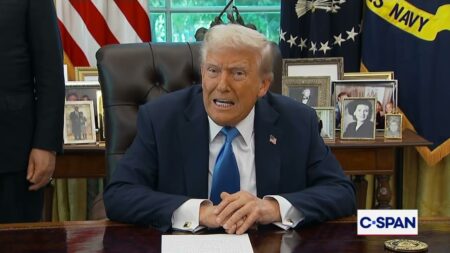When you hear politicians talk about “getting tough” on guns or drugs, the arguments sound very different on the surface. But as Jacob Sullum shows in his new book Beyond Control: Drug Prohibition, Gun Regulation, and the Search for Sensible Alternatives, both crusades share the same broken logic, the same discriminatory history, and the same harmful results.
Different Targets, Same Playbook
Gun control and drug prohibition both grew out of fear and prejudice. Early gun laws were designed to keep freed Black Americans disarmed after the Civil War. Early drug laws were aimed at Chinese immigrants, Black Americans, and Mexican laborers. The pattern was clear: find a group to demonize, tie them to a substance or a weapon, and then pass laws to keep them “under control.”
Fast-forward to today, and the legacy is alive and well. Harsh drug laws still fall hardest on minority communities, even though drug use rates aren’t wildly different across races. Gun control laws do the same—cities with the strictest restrictions tend to be the very places where law-abiding Black Americans get arrested simply for having the means to defend themselves.
Punishing Peaceful People
What’s the real cost of these laws? They don’t stop crime, but they do punish people who aren’t hurting anyone.
- A cancer patient in Florida using medical marijuana legally under state law risks a federal felony charge for owning a gun.
- A young father in Chicago faces years in prison for carrying a pistol in his neighborhood—even if it’s only for self-defense.
- Thousands of peaceful gun owners and marijuana users technically commit federal crimes every single day without ever knowing it.
This is not about stopping violence or protecting public safety. It’s about giving the government more power over ordinary lives.
The Courts Are Starting to Notice
Right now, Section 922(g)(3) of federal law—the ban on gun ownership for “unlawful users” of drugs—is facing serious challenges in court. The 10th Circuit, among other courts, recently ruled that the government must prove marijuana users are actually dangerous before stripping away their Second Amendment rights. Other courts, including the 11th Circuit, have opened the door for medical marijuana users to keep their guns. The Supreme Court has several cases on deck that could force a nationwide ruling.
For once, there’s momentum on both sides. Even leaders who don’t see eye to eye on drugs—like Florida’s Ron DeSantis and Democratic officials—are starting to agree: lawful marijuana use should not erase the Second Amendment.

A Chance for Common Ground
Sullum’s book pushes us to look past party labels. Conservatives are right to be skeptical of gun control. Progressives are right to question the war on drugs. What both sides miss is that the same arguments apply in both fights:
- Government overreach doesn’t solve problems.
- Harsh laws invite arbitrary enforcement and abuse.
- The people most harmed are peaceful, ordinary Americans—not violent criminals.
If we can cut through the political noise, we have a real chance of building coalitions that defend personal freedom and public safety.
Smarter Alternatives
Neither guns nor drugs are going away. Pretending otherwise has only made things worse. Instead of punishing harmless conduct, we should focus on solutions that actually reduce harm:
- Encourage responsible gun ownership through training and culture.
- Treat substance abuse as a health issue, not a criminal one.
- Target violent behavior—not the objects people own.
It’s not about going soft. It’s about being smart.
Final Thoughts
As Sullum makes clear, both the war on drugs and the war on guns have failed. They’ve eroded freedoms, fueled injustice, and left us less safe. Recognizing the parallels is the first step toward sensible alternatives that do more good and less harm.
If you’re serious about protecting your rights and understanding how government “solutions” backfire, Beyond Control is worth your time.
We are in dangerous times! We are NOT meeting our funding goals! Will you help out?
Federal Appeals Court Tosses Gun Conviction for Marijuana User, Orders Retrial






The only powers the State has over it’s citizens are the power to tax and the power to arrest; therefoe the State makes both it’s priority.
We needed a constitutional amendment to out law alcohol.
Why didn’t we need one to out law drugs;
The so called war on drugs has been use to damage our rights for decades.
Possession is nine-tenths of the law, and therein lies the problem. Governments no longer care about intent. In earlier times we had peace officers, men who kept the peace, arresting only those who acted in violence. Now we have law enforcement officers, men and women who fine or arrest you for any technical violation of a multitude of laws that would not pass honest constitutional scrutiny. This is how bureaucratic police states arise.
if federal government decided to follow constitution all this would go away and money spent would fall ,government would shrink
I don’t really see the difference between alcohol and Marijuana use. I don’t drink , but if I did , I wouldn’t be carrying a firearm. Same goes with Marijuana. I don’t see people that use pot getting stupid like some that use alcohol. Pot heads usually slow down if their driving. That’s why they catch hell from other drivers for driving 25 mph on a 70 mph interstate.
But in all seriousness, it should be just like alcohol use.
A few years ago I was asking my congressmen for legislation that relaxed restrictions on guns and marijuana. The idea being both parties get something (I thought) they want and the people get a little less government. It was not warmly received. My conclusion is that Democrats don’t want to give up crime revenue and Republicans want gun control.
There is NO SUCH THING as “medical marijuana” only. It is simply a gateway for FULL RECREATIONAL usage shortly after. Stop this bs fraudulent voting term. Either vote for full recreational sewage, or vote no on legal pot. Stop the GD California doublespeak crap.